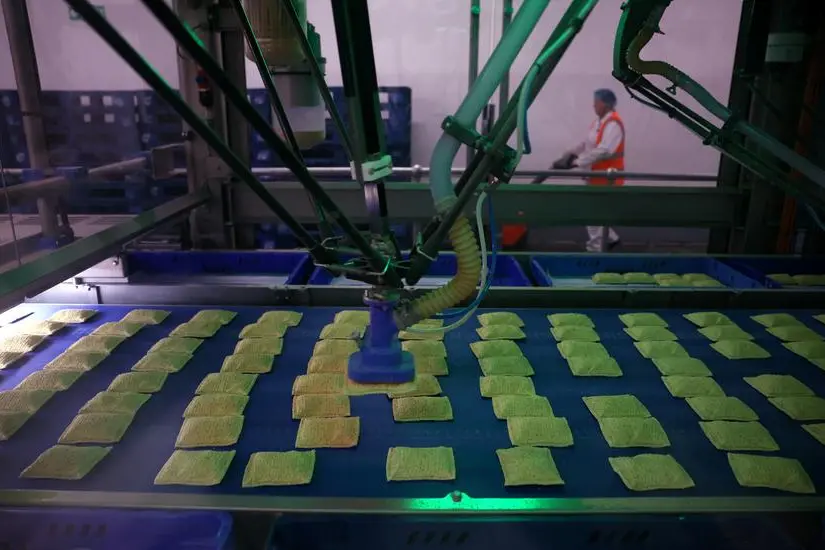PHOTO
LONDON - Euro zone manufacturing activity fell sharply last month and a further decline in demand likely dashed any hopes for an imminent recovery after the sector had showed some signs of stabilisation in October, a survey showed.
HCOB's final euro zone manufacturing Purchasing Managers' Index (PMI), compiled by S&P Global, sank to 45.2 in November, matching a preliminary estimate and further below the 50 mark separating growth from contraction.
In October it was 46.0 and the headline reading has been sub-50 since mid-2022.
An index measuring output, which feeds into a composite PMI due on Wednesday and seen as a good gauge of economic health, dropped to 45.1 from 45.8 in October.
"These numbers look terrible. It's like the euro zone's manufacturing recession is never going to end. As new orders fell fast and at an accelerated pace, there's no sign of a recovery anytime soon," said Cyrus de la Rubia, chief economist at Hamburg Commercial Bank.
"The downturn is widespread, hitting all of the top three euro zone countries. Germany and France are faring the worst, and Italy is not doing much better."
With overall demand falling, despite manufacturers reducing their prices, factories cut headcount at the fastest rate since the COVID-19 pandemic was cementing its grip on the world. The employment index fell to 45.2 from 46.2, its lowest since August 2020.
Foreign demand - including trade between euro zone nations - also fell faster and is likely to worsen as U.S. President-elect Donald Trump, who returns to the White House in January, has proposed a 10% tariff on all imports which would make European goods more expensive there and so less desirable.
That tariff would have a significant impact on the bloc's economy over the coming two to three years, according to a strong majority of economists polled by Reuters last month.
(Reporting by Jonathan Cable; Editing by Toby Chopra)





















